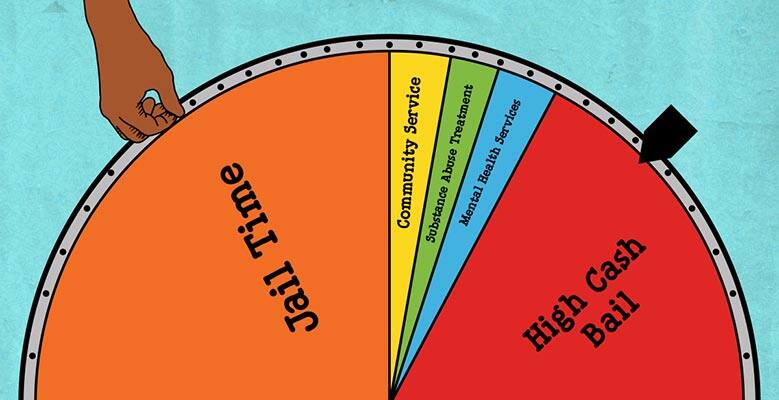March 25, 2021

The state of Pennsylvania sent Joe Ligon to prison for life in 1953. He was only 15 years old—just a kid. When he was released last month at the age of 83, Ligon was the longest serving “juvenile-lifer” in the history of the United States. Imagine spending almost 70 years behind bars for a mistake you made when you were a teenager.
Joe Ligon’s case is extreme, but it’s not unusual. The US has incarcerated more juveniles than any other country on the planet. But prosecuting children as adults is far from the only way that the American criminal legal system has failed to live up to our founding ideals.
This country’s discredited and ineffective approach to criminal justice and public safety needs to be transformed—and electing reform-minded prosecutors is a critically important place to start. In fact, it was a prosecutor who made sure Joe Ligon finally got to go home. (Need a refresher on the role of prosecutors in the criminal legal system? Check out our 101 on prosecutors, then come on back when you’re done!)
Big Changes in Philadelphia
Over a series of recent decisions, the Supreme Court has ruled that incarcerating juveniles for life constitutes cruel and unusual punishment. As a result, the thousands of people serving life-without-parole for crimes they committed as juveniles must have their sentences reviewed. Joe Ligon was released thanks to Larry Krasner, the new Philadelphia district attorney. (District attorney is another name for prosecutor.) Rather than resentence him, Krasner let him go, recognizing the truth of what others have long said, that Ligon’s racially biased, one-day trial back in 1953 was itself likely a miscarriage of justice.
Pennsylvania has more juveniles locked up for life than any other state. As of 2016, the overwhelming majority of the more than 500 juvenile-lifers in its prisons were Black and poor, like Joe Ligon.
Krasner was elected in 2017 promising to confront that kind of racial bias. He also has pledged to hold police accountable, treat kids like kids, take a public health approach to substance use disorders, reform sentencing, and end mass incarceration. And he’s not alone in taking on a bloated, racist criminal legal system that has criminalized poverty and criminalized Black and Brown skin. Reform-minded prosecutors have been elected in races all over the country. Let’s take a quick look at a few who just took office.
Prosecutorial Reform Coast to Coast
District Attorney George Gascón (Los Angeles County, California) directed every law enforcement department in Los Angeles County to turn over information on officers' dishonesty, excessive force, and law breaking. His call for accountability and transparency could result in vital police data finally being made public.
Prosecutor Karen McDonald (Oakland County, Michigan) filed motions for resentencing 22 unconstitutional juvenile-lifer cases, giving nearly two dozen people the chance to get parole. Doing so reversed the decision of her predecessor to reimpose sentences of life without parole on 20 of those individuals.
State Attorney Harold Pryor (Broward County, Florida) announced that his office will stop prosecuting misdemeanor marijuana cases. He sent a memo to Broward County law enforcement agencies saying that he will handle such cases in a “non-criminal” manner. “Prosecuting these cases has no public safety value and is a costly and counterproductive use of limited resources,” the memo read.
District Attorney Jason Williams (Orleans Parish, Louisiana) committed to not opposing parole bids, which is to say that his office will not be automatically seeking prison time in every case, as so many other prosecutor’s offices do in Louisiana and around the US. “I made a commitment to the people of New Orleans that we would be serious about working to end mass incarceration,” he said.
How to Transform Public Safety
Not too long ago, prosecutors regularly ran and won their races on being “tough on crime,” which is basically code for “filling up jails and prisons with Black and Brown people.” Yes, many prosecutors still do see their role in those terms, but with each passing election there are more and more reformers in office who no longer think of things that way. They know that mass incarceration doesn’t keep us safe. They know it’s time for things to change.
When prosecutors push back on mandatory minimum sentencing, plea bargaining, and cash bail (look at what just happened in Illinois!), when they call out the injustice of racial bias in policing and the courts and the inhumanity of prosecuting youths as adults, it changes people’s lives for the better and strengthens their communities. As we continue to grow the movement to divest from policing and incarceration and invest in community services instead, these reform-minded prosecutors can be our allies in reminaging our country’s approach to keeping people safe and healthy.
Recent Articles


